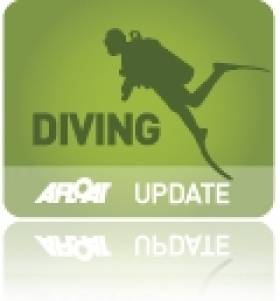Displaying items by tag: Expo
Dive Ireland Expo 2024 Takes Place This Weekend
The annual Dive Ireland Expo is running this weekend at the Sport Ireland Campus near Blanchardstown in West Dublin.
Organisers at Viking Sub Aqua Club promise “the biggest dive show ever”, with SCUBA diving featured along with snorkelling, free diving and other watersports from paddle boarding to sea swimming and even ocean photography.
The weekend also welcomes a host of guest speakers, with Sunday’s bill including award-winning underwater photographer George Karbus and film-maker Ken O’Sullivan.
Tickets and more are available at DiveIreland.ie.
Dive Ireland 2013 Is 'Huge Success'
#Diving - The Irish Underwater Council (CFT) reports the "huge success" of the 22nd annual Dive Ireland expo in Athlone at the weekend.
The two-day event at the Hodson Bay Hotel welcomed "speakers from near and far as well as photography workshops and a fully loaded international trade fair" - not to mention the CFT National Dive Conference and AGM.
Ahead of the expo, Minister for Arts, Heritage and the Gaeltacht Jimmy Deenihan commented on the role of SCUBA clubs and diving centres in Ireland's national tourism infrastructure in promoting this country's dive sites.
In the foreword to the recently published Warships, U-boats and Liners, he also wrote of the Government's commitment to developing its archive of wrecks in Irish waters.
“With the support of responsible dive centres and local dive clubs ... these wrecks can be explored now and into the distant future by visitors from home and abroad.”
According to the CFT, local authorities are also starting to recognise the importance of developing aquatic activities to encourage tourism.
One example is Mayo County Council's Blue Ways list of swimming and snorkelling sites along the county's coast, which complements its Green Ways walking trails.
The council also highlighted the importance of heritage among Ireland's diving community, and their role in discoveries such as the Viking-era swords retrieved from the River Shannon near Banagher last autumn, as the Offaly Independent reports.
























































